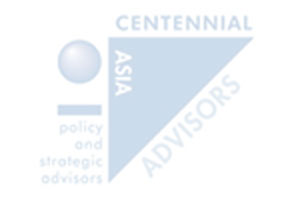- May 18, 2022
- Posted by: admin
- Category: Daily News
No Comments

- Malaysians are hungry for new political parties, a US-funded survey has found.
- According to the survey commissioned by the US-based International Republic Institute (IRI), 50% of respondents said they want to see new political parties, while 44% are satisfied with current choices. Another 6% were unsure or refused to answer.
- The response, collected between 7 and 24 Mar 22, marks a 4% increase in a desire to see new parties in future elections compared to when the same survey was run in Oct 21.
- The survey polled 1,207 Malaysians aged 18 and above. The IRI’s survey arm said the respondents were nationally representative, and the data was post-weighted for state, gender, age, ethnicity, and urbanicity based on 2019 estimates by the Statistics Department.
- It said the margin for error did not exceed 2.8 percentage points.
- The demand for new political parties rose across all age groups from 18 to 65, with only those above 66 having a reduced appetite for new options.
- Youths aged 18-35 had the highest demand for new parties at 57%, while 52% of those aged 36 to 50 had the same desire.
- For those aged 51 to 65, 50% were happy with the current crop of parties, while those 66 and above, 63% were satisfied.
- Ethnically, the want for new parties was strongest among Indians (62%) and Chinese (59%), although desire from the latter group had decreased from 65% in Oct 21.
- As for Malays, 46% wanted new parties, while 42% of bumiputeras shared the same hankering. It is unclear why the demand for new parties is on the rise.
- However, between the Oct 21 and the Mar 22 surveys by the IRI, Malaysia saw three state elections – the Malacca, Sarawak, and Johor polls.
- In all three elections, BN and its Sarawak offshoot GPS won resounding victories, while Pakatan Harapan and Perikatan Nasional were dealt heavy losses.
- With the exception of Muda, new post-GE14 parties that contested in the Johor polls – Pejuang, Putra, and Parti Bangsa Malaysia (PBM) – performed poorly at the ballot box and lost all their deposits.
- Meanwhile, despite the increased demand for new parties, the IRI noted that only 23% of the same respondents listed electing different political leaders as their main reason to vote in the next general election.
- A majority (57%) were more concerned about ensuring that the next government had the people’s mandate. However, the IRI survey indicated that fervour for elections is on the decline.
- The survey appeared to indicate that turnout in the next election could be low, with only 53% saying they were very likely to vote, compared to 57% in Oct 21.
- Another 31% said they were “somewhat likely” to vote, indicating that they may be on the fence on whether to go to the ballot box.
- Overall, only 17% of respondents were very satisfied with the state of democracy in Malaysia, while 44% were “somewhat satisfied”, 27% somewhat dissatisfied, 11% very dissatisfied, and 1% unsure.
- On PM Ismail’s approval ratings, 17% of respondents “approve a lot” of the current government. However, another 45% “somewhat approve”. Another 22% “somewhat disapprove”, while 13% “disapprove a lot” and three percent were “unsure”.
- The favourable and somewhat favourable responses towards the Ismail Sabri government were above 50% for all age groups, as well as among both urban and rural dwellers.
- Chinese respondents had the least favourable opinion of the Ismail Sabri government, with only 7% strongly approving and 36% somewhat approving.
- While the opinion of Ismail Sabri is somewhat favourable, there is declining confidence in the country’s direction. Among the respondents, 64% believe the country is going in the right direction compared to 70% in Oct 21.
- The number of those who believe the country is headed in the wrong direction has increased from 22% in Oct 21, to 28%.
- On issues that they want the government to address, 34% believe national unity to be the top priority, followed by judicial and parliamentary independence (22%), discrimination and affirmative action (18%), electoral and political financing reform (13%), and party-hopping (9%).
External Link : https://www.malaysiakini.com/news/621596
External Link : https://www.malaysiakini.com/news/621612
External Link : https://www.iri.org/resources/public-opinion-poll-residents-of-malaysia-march-2022/
18-May-2022
